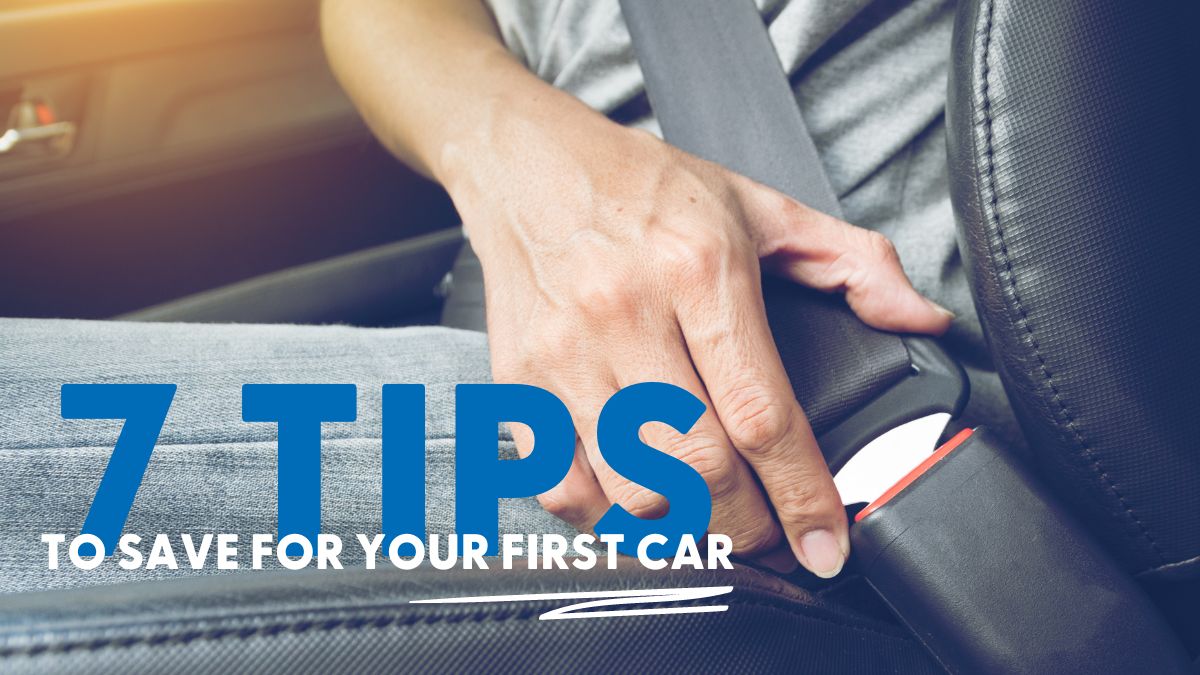October 3, 20227 Tips to Save for Your First Car
Buying your first car is an exciting experience! After all, with your very own vehicle, you can finally experience the freedom and independence you’ve been wanting.
However, buying a car also means you’ll have additional expenses each month. If you’re financing your vehicle, you’ll have to consider the down payment and ongoing monthly payments. Plus, you will need to budget for gas, insurance, and maintenance.
While saving for your first car may take some time, you’ll be on the road to freedom in no time by utilizing these seven tips.
1) Determine How Much You Need to Save.
The first step is to determine how much is necessary for the down payment and what the payments will be each month. Spend time researching online to get an idea of the cost of the vehicle you want. You can call PEFCU for help determining your monthly payments, or you can use our free online financial calculators.
Once you factor these figures into your budget, estimate how much is necessary for fuel and insurance each month. A quick call to your insurance company will help you obtain a new quote. Then, determine how much driving you’ll be doing each month – are you driving to work or school? It’s wise to always overestimate how much you’ll spend on gas each month since fuel prices fluctuate.
2) Open a Separate Savings Account.
In order to prevent accidentally spending the money you’re saving for your new car, consider opening a separate savings account. It’s smart to limit access to this account to help avoid any temptations to spend it on other things. You can use this account for your down payment and upcoming monthly payments, as well as gas, insurance, and maintenance.
3) Automate Your Savings.
Putting your savings on autopilot is a great way to ensure your new car fund grows consistently. Whether you’re currently working a job or earning money through various tasks, there are tools to help you automate this process.
Payroll Distributions is the perfect tool to automate your savings if you’re receiving a paycheck regularly. Every time your paycheck deposits into your account, a portion you choose automatically transfers into your savings account.
If you receive money through various tasks, like an allowance or odd jobs (such as mowing lawns in the neighborhood), Automatic Transfers are ideal. Like Payroll Distributions, you choose the monthly amount to transfer to your savings account. However, instead of being tied to your paycheck, the transfer takes place on a specific date you choose each month.
4) Save Regularly.
Always try to add extra funds to your savings whenever you can. For instance, if you receive money for your birthday or the holidays, consider putting a portion of these into your savings account. That way, you can spend a little on yourself and still continue to build your new car savings. Even if it’s a small amount, get in the habit of regularly depositing a portion into your new car fund. Every little bit helps!
5) Increase Your Income.
If you currently have a job, you may want to consider asking for extra hours. Or you may want to look into other side gigs, such as freelancing projects. Another option is to ask your friends, family, or neighbors if there are any tasks you can help with to earn more money. These could include lawn maintenance, car washing, or even pet sitting. Quite often, if you explain you’re trying to make money to buy a car, they’ll be helpful and find tasks you can help with to reach your financial goals.
6) Think Modestly.
Since this is your first car, think small and think modest. You probably shouldn’t be buying a high-end vehicle. Why? Even if you can afford the monthly payments, the insurance and maintenance can quickly deplete your budget. In addition, you want to use this first vehicle as a means to learn the ins and outs of owning a car and all that’s required.
Plus, buying a modest car will require you to save less money for the down payments and ultimately spend less throughout the life of your vehicle. Always keep in mind that you can trade up later when your income increases.
7) Ask Your Parents.
Consider asking your parents to help you. If they see you’re responsible with planning and saving for your new car, they may assist you. For instance, ask if they are willing to match your down payment amount or help pay for a portion of your monthly car or insurance payments. Either way, it never hurts to ask. You may be surprised by their answer.
We’re Here to Help!
While buying your first car is exciting, it’s important that you financially prepare yourself for all the expenses involved. PEFCU offers a First-Time Car Buyer program where having no credit is no problem*! Visit https://www.pefcu.com/loans/vehicle-motorcycle-boat-rv-loans/first-time-car-buyer-program/ for more information about this program. Federally insured by NCUA.
*Terms and conditions: Advertised as low as 7.25% APR (Annual Percentage Rate) assumes no credit score. Your actual APR may differ based on your credit score/history, approved loan amount, and terms. Loans are subject to Credit Union membership eligibility, credit approval, and certification of information provided on the application. The maximum loan term is 72 months. Payment example: a $20,000 loan amount, 72-month term at 7.25% APR would result in a monthly payment of $343.39.
Everyone’s financial situation is unique, and readers are encouraged to contact PEFCU when seeking financial advice on the products and services discussed. This article is for educational purposes only; the authors assume no legal responsibility for the completeness or accuracy of the contents.


